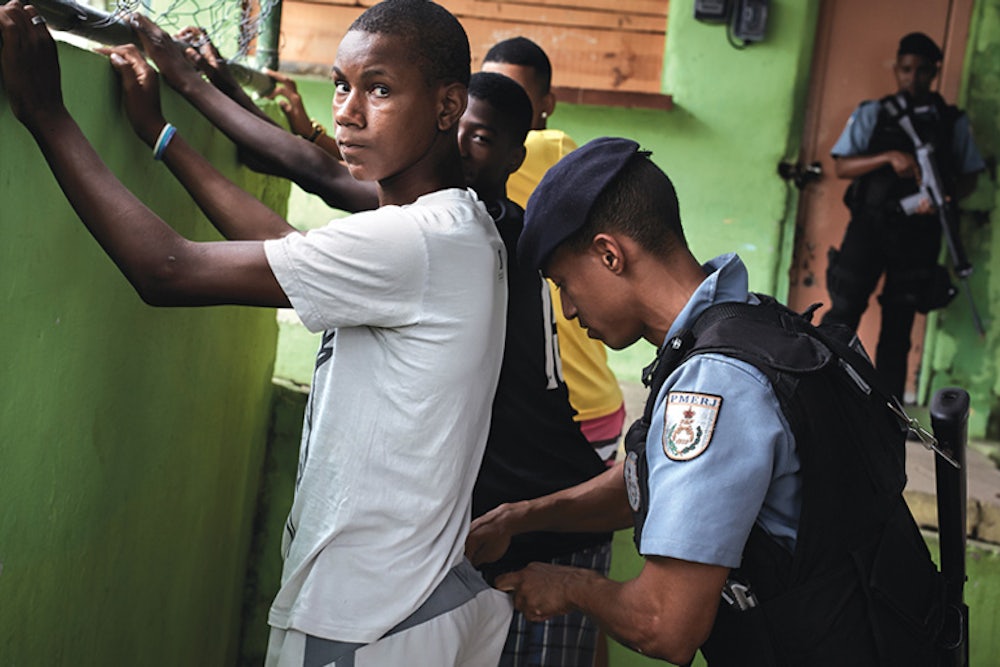The metropolis of Rio de Janeiro, never lacking for spectacle and chaos, is presently welcoming the thousands of visitors squeezing into the city to be a part of the 2014 World Cup. Two years from now, its 6.3 million residents will have to share their city with even bigger throngs when the Olympics come to town. Already, they are feeling the strain of the put-upon host.
As new facilities, retail, and accommodations pop up with each passing week, the cost of living rises along with the pace of construction. But rapid development isn’t Rio’s only stressor: To make the city presentable for international spectators, the military and police have been deployed in a program of slum clearance. In the favelas, heavily armed tactical units have engaged in pitched battles with squatters and local gangs as recently as last month.
Earlier this year, photographer Sebastiano Tomada embedded with officers of the Unidade de Polícia Pacificadora (UPP), as the special force is known, while they went about patrols that have not entirely had the desired effect. “It’s a city that has a lot going on,” Tomada says. “Maybe a little too much.” – Kevin Mahnken







